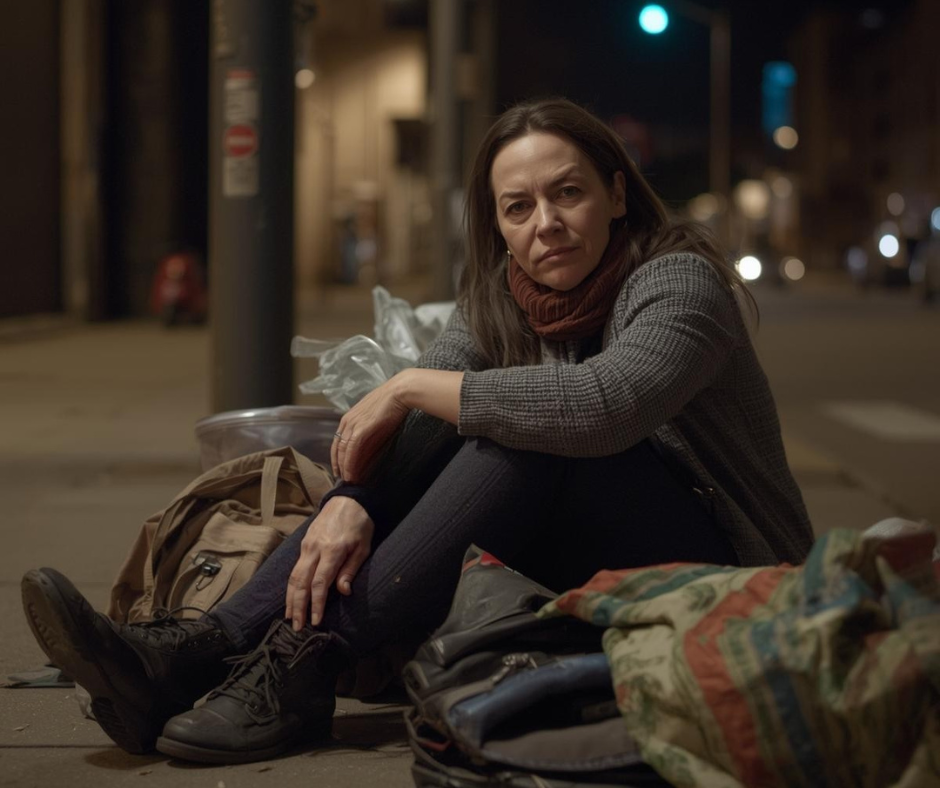What if homelessness isn’t the problem?
The hidden cracks we don’t always see

What if homelessness isn’t the problem?
When we talk about “ending homelessness,” it’s natural to assume that homelessness itself is the problem. After all, the word is right there: no home. Surely if we fix that, the issue is solved. But the truth is more complex. Homelessness is often not the root cause, but the visible symptom of something much deeper.
Think of a fever. The fever isn’t the disease - it’s the body’s way of saying something is wrong beneath the surface. In the same way, homelessness is the outward sign of broken systems, poverty, inequality, trauma, and the absence of a strong community to catch people when they fall.
The hidden cracks we don’t always see
For some, it takes just one or two life events to slip through the cracks. A job loss. A family breakdown. A sudden illness. For others, the roots go back years - childhood trauma, lack of opportunity, untreated mental health struggles. The tragedy is that when those cracks open up, there’s often no safety net strong enough to stop the fall. That’s why when we look at someone experiencing homelessness, it isn’t simply about “not having a home.” It’s about the structures that failed them long before the street or the sofa became their reality.
So, what if we shifted our thinking?
If homelessness is a symptom, then the solution cannot be limited to bricks and mortar. A home is vital - but it’s the beginning, not the end.
We need to ask bigger questions:
- What systems need to change so that people don’t slip through the cracks in the first place?
- How can we rebuild communities where everyone feels like they belong?
- What does dignity look like for someone who’s been written off by society?
At Green Pastures, we’ve seen firsthand that the real solution is deeper than housing alone. It’s about relationship. It’s about walking with someone, not just putting a roof over their head. It’s about helping people rediscover purpose, value, and hope.
And ultimately, it’s about pointing people to the One who restores every broken heart. Jesus’ love, grace and forgiveness reach into the darkest places, and we’ve seen lives transformed not just by safe homes, but by the hope found in Him.
A story of transformation
Let me share one story (name changed for privacy).
Sarah was in her 40s when she came to one of our partners, having lost everything after a violent relationship. On paper, the “problem” was homelessness. But as our partners listened, they realised it wasn’t just about needing a home. She was carrying deep trauma, shame, and fear about what came next.
Yes, she needed a safe place to sleep. But what transformed Sarah’s story wasn’t only the home we provided - it was the community that wrapped around her. She found people who believed in her, supported her through counselling, helped her rebuild her confidence, and gave her the stability to start fresh.
In time, Sarah also rediscovered her faith. She began to see herself through the eyes of a God who loves unconditionally, forgives freely, and restores what feels lost. Today, Sarah is thriving in her own home, working part-time, and even mentoring others.
Her story reminds us: the issue wasn’t just homelessness. The real issue was everything underneath it and the healing, love and hope that only Jesus can bring.
Why this matters to all of us
Homelessness isn’t a problem “out there” that only affects “other people.” It’s a mirror that reflects the health of our society.
If people can lose everything after one crisis, what does that say about our safety nets?
If families are forced apart by poverty, what does that say about our priorities?
If entire generations are growing up without stability, what future are we building?
When we treat homelessness as the root problem, we risk only treating symptoms. But when we see it as a sign of deeper brokenness, we can start addressing the causes and build a society where fewer people fall through the cracks in the first place.
At Green Pastures, our mission has never been just about housing. It’s about creating a movement of hope. Yes, we buy houses and open doors. But more than that, we build communities where people are known, loved, and given the chance to flourish.
Because the opposite of homelessness isn’t just “housing.” The opposite of homelessness is belonging and for us, that belonging is rooted in the truth that every single person is made in the image of God, loved by Him, and invited into His family through Jesus.
A question for you
As you reflect on this, ask yourself:
👉 What if homelessness isn’t the problem?
👉 What if the deeper challenge is creating communities where everyone belongs, and no one is left behind?
👉 And what if the deepest answer isn’t just a home, but the hope that comes through Jesus?
We’d love to hear your thoughts. Join the conversation, share your perspective, and let’s reimagine a society where homelessness is no longer inevitable and where every person discovers their true worth in God’s eyes.
Please note: The image used in this article was created using AI technology. It does not depict a real person. This approach helps protect the privacy of individuals while allowing us to illustrate the important message behind this post.
